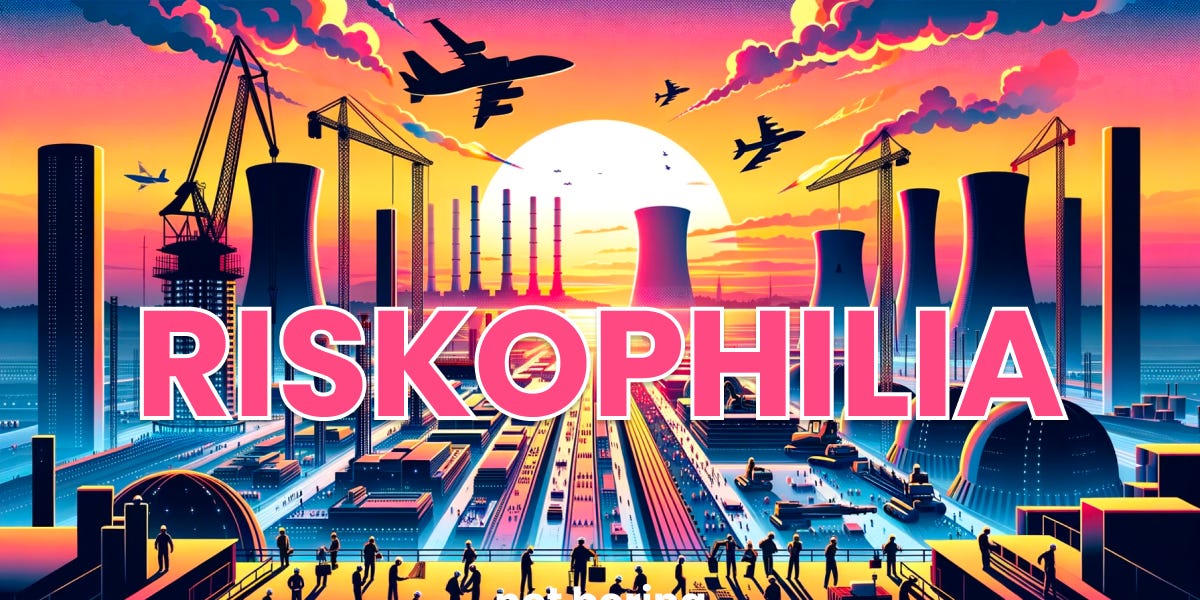Risk is a Four Letter Word
We trade freedom not for safety, but for the illusion of safety. Illusion, because: you can’t eliminate risk. - Packy McCormick

Capital Thinking • Issue #1183 • View online
What if we’re thinking about risk backwards?
Over the weekend, a paper in The Journal of Pediatrics titled, Decline in Independent Activity as a Cause of Decline in Children’s Mental Well-being: Summary of the Evidence swept the internet.
The authors’ argue that “a primary cause of the rise in mental disorders is a decline over decades in opportunities for children and teens to play, roam, and engage in other activities independent of direct oversight and control by adults.”
Riskophilia
Not Boring by Packy McCormick:
Right on the first page, they write (emphasis mine):
Over time, however, beginning in the 1960s and accelerating in the 1980s, the implicit understanding shifted from that of children as competent, responsible, and resilient to the opposite, as advice focused increasingly on children’s needs for supervision and protection. Rutherford noted, as have other reviewers, that in some respects—such as freedom to choose what they wear or eat—children have gained autonomy over the decades. What has declined specifically is children’s freedom to engage in activities that involve some degree of risk and personal responsibility away from adults.
My thesis is that it’s not just the kids.
Replace “children” with “people” and the paragraph works just as well!
Over the same time period, beginning in the 1960s and accelerating in the 1980s, the implicit understanding shifted from that of Americans as competent, responsible, and resilient to the opposite, as advice focused increasingly on Americans’ needs for supervision and protection.
As a quick pulse check, I asked ChatGPT to give me a rough estimate of America’s attitude towards risk every decade since our founding:

This is an admittedly unscientific approach, but I found it interesting. ChatGPT has no horse in this race, and the dropoff from the 1960s to the 1970s lines up with the child-raising paper and the rise in regulation. Something changed in the 1970s (cue: wtfhappenedin1971?).
If you deconstruct the larger trendline into two – one from the 1770s - 1960s and the other from the 1960s - 2020s – that change jumps off the page.
We stopped embracing risk and started trying to eliminate it. We went from riskophilia to riskophobia.
The 1970s are a fascinating decade for people who think about progress. Tyler Cowen calls the period since 1971 The Great Stagnation, a half-century slowdown in productivity and innovation. In WTF Happened in 2023?!, I wrote that about that year, “You might have picked up a shift from optimism to pessimism, which trickled into policies, corporate decisions, and then, years later, into the data.”

Learning to Love Risk
"Whether we’re talking about parenting or regulation, the idea that you can is comforting. It provides a sense of control. Everyone wants their kids to be safe. But risks don’t operate in a vacuum. By trying to limit known but potentially small risks, you open yourself up to bigger but less legible risks elsewhere.
It’s like squeezing a water balloon. Push on one side, the water moves to the other. Push too hard, and the balloon explodes."

